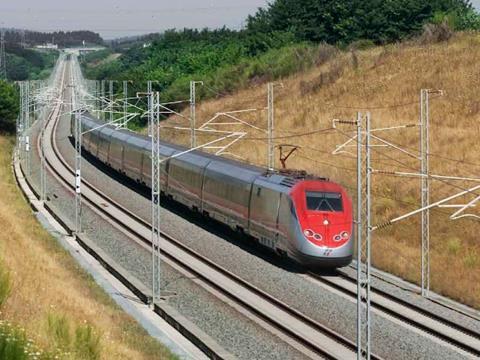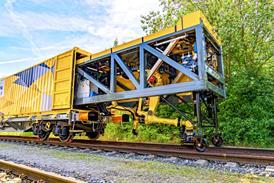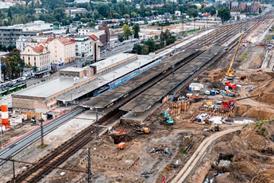
ITALY: A €28bn package of funding for FS Group infrastructure spending was formally approved by the government’s Interministerial Committee for Economic Planning on July 24, the state railway group has confirmed.
CIPE has also approved updates to the programme contracts between the Ministry of Infrastructure & Transport and the group’s two main infrastructure subsidiaries – rail infrastructure manager RFI and motorway operator ANAS. The 2018-19 update to RFI’s 2017-21 Investment Programme Agreement provides €15·4bn for the national rail network, while changes to the ANAS 2016-20 Planning Agreement provides €12·5bn for road spending.
According to FS, CIPE’s approval of the new resources confirms the government’s commitment to the group’s Industrial Plan for 2019-23, which envisages total investment of €28bn for rail infrastructure and €14bn for roads, allowing the acceleration of both new construction and maintenance projects.
The government has already given the go-ahead for construction of the Brescia – Padova section of the Milano – Venezia high speed corridor, following the publication of a cost-benefit review on July 3. This found that it would be more beneficial to complete the project than paying cancellation penalties to the Cepav Due consortium which had been selected as contractor for the scheme as long ago as 1991.
Work is to start first on the 60 km Brescia – Verona section, which is projected to take seven years at a cost of around €2·5bn. Work had been expected to begin last year, before the election of the current government. Top priority will be to start work on the 7·7 km tunnel between Lonato del Garda and Desenzano del Garda, which is the most complex part of the route. The 10 m diameter TBM to excavate this tunnel was completed at the Zhengzhou plant of China Railway Engineering Equipment Group on June 22.
Meanwhile, work has restarted on the €6·2bn Terzo Valico project to build a 53 km mixed-traffic high speed line between Genova, Novi Ligure and Tortona, adding capacity in the Genova – Torino/Milano corridor. According to an analysis presented to Transport Minister Danilo Toninelli, completing the project would deliver benefits worth €1·6bn, but cancellation would have incurred penalties of about €1·2bn on top of the €1·5bn already spent. The new line is now expected to be finished in 2023.
RFI has allocated €2·1bn for completion of the Napoli – Bari high speed corridor, €3bn towards upgrading the Palermo - Catania line for 200 km/h operation, a further €818m for the Terzo Valico, €211m for speed improvements on the Roma – Pescara line and €250m for quadrupling between Pavia and Milano Rogoredo.
On July 24 Italian Prime Minister Giuseppe Conte said he supported the construction the controversial Lyon – Torino Base Tunnel and high speed line, suggesting that cancelling the project would cost more than pushing ahead, given the increased financial support from the EU and a positive vote in the French parliament. However, a cost-benefit analysis suggests that the project would represent a net cost of €7bn to €8bn, and the two ruling parties cannot agree; La Lega is in favour of continuing, while the 5-Star Movement opposes the projects. M5S is also opposed to the Firenze high speed tunnel, for which a cost-benefit review started in February has not yet been completed.

















